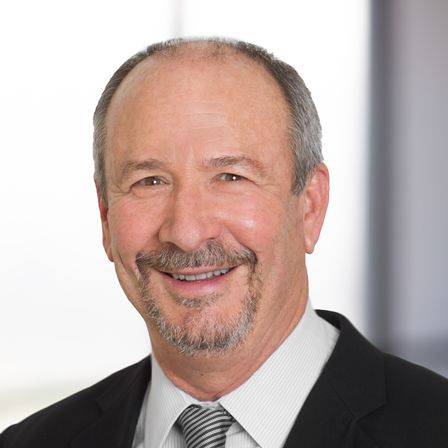Here to Stay: Cal/OSHA Discusses Permanent COVID-19 Prevention Measures
September 2021
On September 17, 2021, the California Division of Occupational Safety and Health (Cal/OSHA) released for discussion the initial draft of proposed permanent COVID-19 regulations. At this point these are merely proposed regulations and will not likely go into effect until April 2022. If they take effect, they will replace the current Emergency Temporary Standards (ETS). On September 23, 2021, we attended the Cal/OSHA stakeholders meeting to discuss the proposed regulations. Given the arguments for and against many of the proposed requirements, there will likely be some changes from the initial draft text. The most significant takeaways from the Proposed Permanent Standard (“PPS”) are discussed below.
The PPS Does Not Mandate Vaccination
While the PPS comes shortly after the President’s COVID-19 Action Plan, Path Out of the Pandemic, it does not mandate vaccination or require testing instead of vaccination. Cal/OSHA began its meeting on September 23rd indicating that it will separately evaluate how to respond to the federal OSHA requirement for vaccination in the workplace once federal OSHA publishes its own emergency standard on that issue. This discussion will likely happen outside the context of any further revisions to the current ETS or PPS.
Sunset Provision
The PPS will likely apply for two years after the effective date. It includes a footnote that it may apply for three years, however several of the stakeholders at the meeting were against that length of time. Cal/OSHA is further considering whether any other triggering events, such as low transmission or hospitalization rates, could end the PPS. Nonetheless, this proposed sunset date indicates that COVID-19 protocols will be here to stay, even when COVID-19 is (hopefully) in the rearview mirror.
Elimination of Exclusion Pay, Handwashing, and Cleaning/Disinfecting Procedures:
In a significant change from the ETS, the PPS removes any reference to “exclusion pay.” As a reminder, the current ETS requires employers, subject to some exceptions, to maintain an employee’s earnings if they have been excluded from the workplace due to COVID-19. As such, any continuing COVID-19 paid leave obligations would be left to the legislature. If adopted, the PPS may result in additional supplemental sick leave requirements, which are currently set to expire on September 30, 2021. The PPS similarly removes any express requirements regarding handwashing or cleaning/disinfecting procedures.
Incorporating State and Local COVID-19 Requirements
The PPS incorporates the California Department of Public Health (CDPH) guidelines and recommendations by reference. Specifically, the PPS definitions of “close contact” and “infectious period” will change if the CDPH enacts different definitions. The PPS would also require that employers follow CDPH requirements and/or guidance, when available, regarding exclusion of COVID-19 cases and/or close contacts. Similarly, although the PPS appears to maintain masking requirements for unvaccinated employees, it would require employers to provide and ensure the use of face coverings whenever required by the CDPH.
COVID-19 Prevention Plan May Be Incorporated in IIPP
The current PPS would eliminate the need for a COVID-19 Prevention Plan (CPP). Instead, an employer would be required “to address the workplace hazard of COVID-19 through its Injury and Illness Prevention Plan (IIPP).” Many stakeholders opposed this option and asked that employers have the option to maintain a separate CPP or include in their IIPP. At a minimum, similar to the current ETS, the PPS will likely require that employers assess the hazards of COVID-19, train their employees about the hazards and conduct investigations of COVID-19 cases in the workplace.
Requirements Regarding Face Coverings, Respirators, and Personal Protective Equipment (PPE):
The PPS would require that employers provide and ensure the use of face coverings whenever required by the CDPH. In the absence of CDPH requirements, the rule defaults to requiring that unvaccinated employees wear face coverings while indoors or in a vehicle with others. Under the PPS Employers are now only obligated to provide respirators (N95s) for voluntary use to employees identified by a health care professional “as being at increased risk of severe illness from COVID-19, regardless of vaccination status.” This is a departure from the current ETS, which requires that employers provide respirators upon request to only to unvaccinated employees.
Vaccine Documentation Requirements
The PPS defines “fully vaccinated” to mean that the employer has “an electronic or physical copy” of the vaccination record stating the (1) vaccine manufacturer and (2) date of last dose, including any booster doses. This language precludes employee self-attestations to verify vaccination status. The PPS would further require employers to maintain COVID-19 vaccination records for two years beyond the period “in which the records are necessary to meet the requirements” of the PPS. Accordingly, vaccination records will likely have to be maintained for at least two years after the rule’s sunset date (currently April 2024). In addition, the PPS would require notices of a COVID-19 case at the worksite to be kept for at least three years.
Additional Ventilation Requirements
The PPS has expanded ventilation requirements requiring employers to review CDPH and Cal/OSHA guidance regarding ventilation and to implement changes as necessary and provide specific options for potential implementation. The PPS further provides that employers subject to Mechanically Driven HVAC Systems and Mechanical Ventilation Systems standards to review and comply with those sections as applicable.
COVID-19 Notice and Testing Requirements
The PPS will also likely require that employers provide COVID-19 testing to all close contacts during working time and at no cost to the employee, regardless of vaccination status. This is a departure from the current ETS which only requires testing unvaccinated and symptomatic vaccinated employees after a close contact. Similar to the ETS, the PPS also excludes employees who have recovered from COVID-19 and have remained asymptomatic for 90 days from the testing requirement.
Revised Outbreak Requirements
Under the PPS, all outbreaks, minor or major, would be governed by a single section. The current ETS splits the requirements into two sections: outbreaks and major outbreaks. As before, there are testing obligations and other requirements imposed depending on whether it is a regular or major outbreak. Additionally, under the PPS as with close-contact testing requirements, vaccinated employees are not exempt from testing during an outbreak. Major outbreaks involving 20 or more positive cases in 30 days will be reportable to Cal/OSHA under the PPS.
What Happens Now?
The Current ETS are still in effect most likely until April 2022. The PPS may undergo some additional changes before it is implemented, likely in April 2022. However, it is clear that COVID-19 regulations are here to stay and we will continue to keep employers apprised of future developments.
Stradling Has Resources To Help You Stay Compliant
To assist California employers in complying the various COVID-19 requirements in California, Stradling has created COVID-19 protocols which incorporate all the new requirements and clarifications of the ETS and help businesses comply with federal, state, and county requirements. We encourage you to reach out if you are in the process of reopening or you have been conducting business and want to make sure you are in compliance with the applicable industry guidelines.
Please do not hesitate to reach out to us for assistance in dealing with the effects of the COVID-19 pandemic on your company.
Labor and Employment Practice Group
Jeff Dinkin
805.730.6820
Jared Speier
805.730.6804
Intellectual Property Practice Group
Steven Hanle
949.725.4126
Corporate and Securities Practice Group
Ryan Wilkins
949.725.4115
Public Finance Practice Group
David Casnocha
415.283.2241
Brian Forbath
949.725.4193
Litigation Practice Group
Jason de Bretteville
949.725.4094


